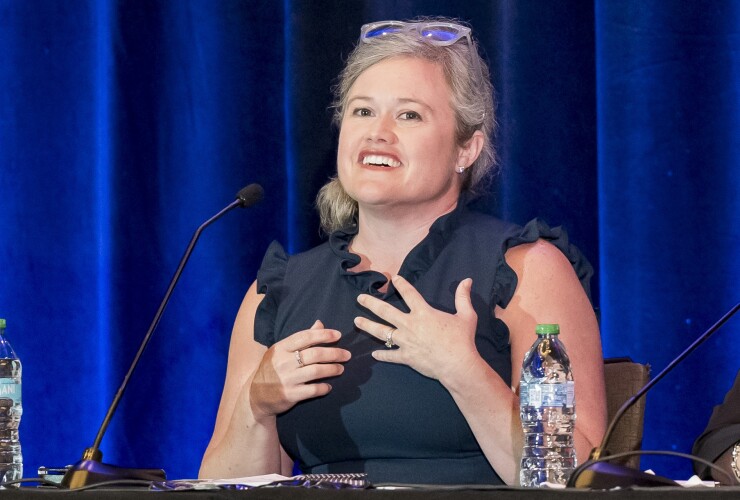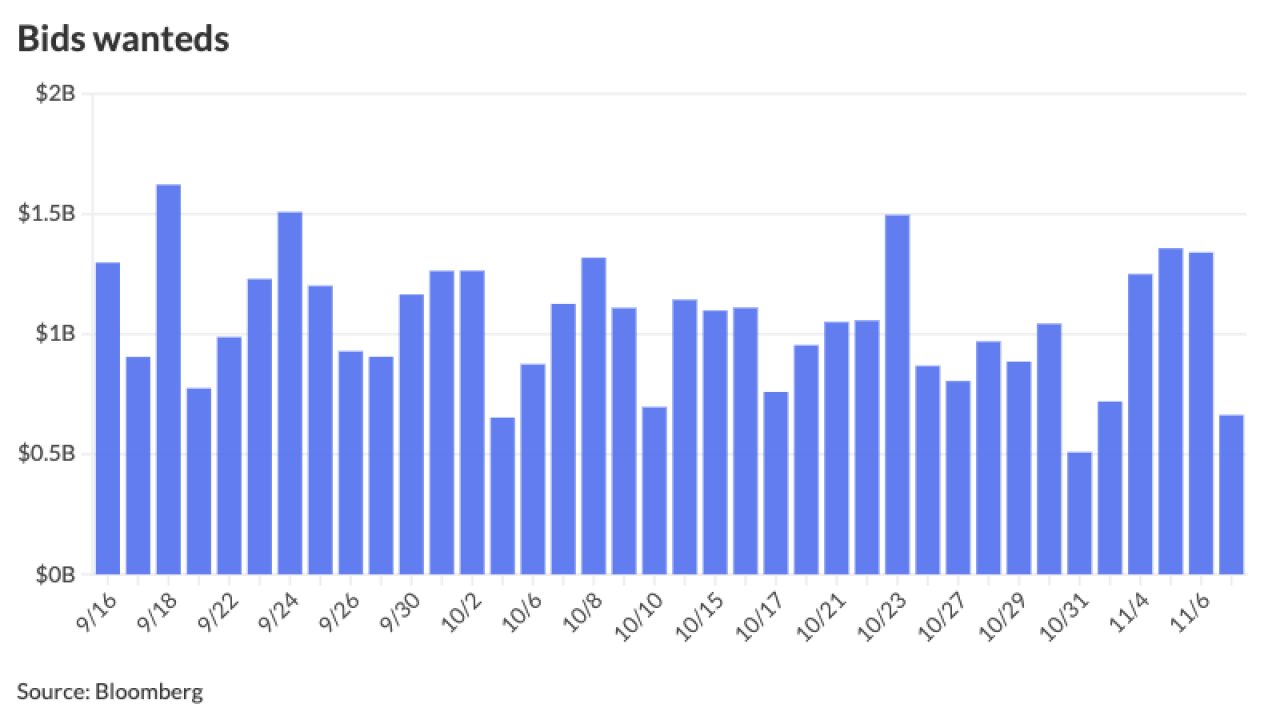
The longest government shutdown in U.S. history stepped closer to ending late Monday after the Senate passed a stop-gap measure to fund the government through Jan. 30, 2026.
The package includes full-year appropriations for the departments of Agriculture and Veterans Affairs and legislative operations. It also
Eight Senate Democrats voted with Republicans to pass the measure by a 60-40 margin despite the lack of the key Democrat demand to extend Affordable Care Act health insurance subsidies. Republican leaders have promised a vote on the subsidy extensions in mid-December.
"This has been a very long road, quite literally the longest shutdown in history," said Senate Majority Leader John Thune, R-S.D. "I am very, very happy to be able to say that we are coming to the end."
The shutdown, which reached day 42 on Tuesday, has pressured municipal issuers from cities and states to airports with airlines facing delays and cancellations. A coalition of issuers including the National Governors Association, the National Association of Counties, the National League of Cities and Government Finance Officers Association
The reopening will end the uncertainty that has flustered issuers and investors and delayed muni-centric legislation like the
"Despite the ongoing divide and finger pointing between my friends on the left and the right, there has been great suffering and dislocation during this shutdown and it needs to end," said Chuck Samuels, a member at Mintz and counsel to the National Association of Health & Educational Facilities Finance Authorities. "As we get back to business, we have to realize there is no new normal at this point. In the case of healthcare and education, they will continue to be on the firing line and we need to be vigilant to make sure there is no encroachment on our critical capital- raising mechanisms."
The current funding measure kicks the can until January, said the GFOA's federal liaison Emily Brock, and the hope is that by then Congress will have a deal on full-year appropriations for all agencies. "It seems like every member of Congress would love to see continuous operation of the federal government, but that does require consensus and we're once again in unprecedented times," she said.
Brock added that the Senate bill includes a
The planned December vote on ACA subsidies will be key to what happens when the proposed continuing resolution ends, said Brett Bolton, vice president and head of government and industry relations at the Bond Dealers of America.
"I think that if the ACA vote fails or does not materialize, we could see yet another shutdown heading into February of next year," Bolton said. "I think this also takes the possibility of any large-scale legislation, either via reconciliation or in a bipartisan manner off the table for the rest of this Congress."
Taking big-ticket legislation off the table would remove any potential threats to the tax exemption but also take away opportunities for advancing muni mark priorities like restoring tax-exempt advance refunding. Brock said she hasn't given up hope for muni-friendly tax legislation next year. "Our champions still feel strongly there is a potential to be a tax action next year," she said. "Any opportunity we see we will be advocating for the return of advance refunding and the introduction of bank-qualified debt."
The Senate may take up as soon as next week four additional appropriations bills: Defense, Labor-Health and Human Services-Education, Commerce-Justice-Science, and Transportation-Housing and Urban Development.





